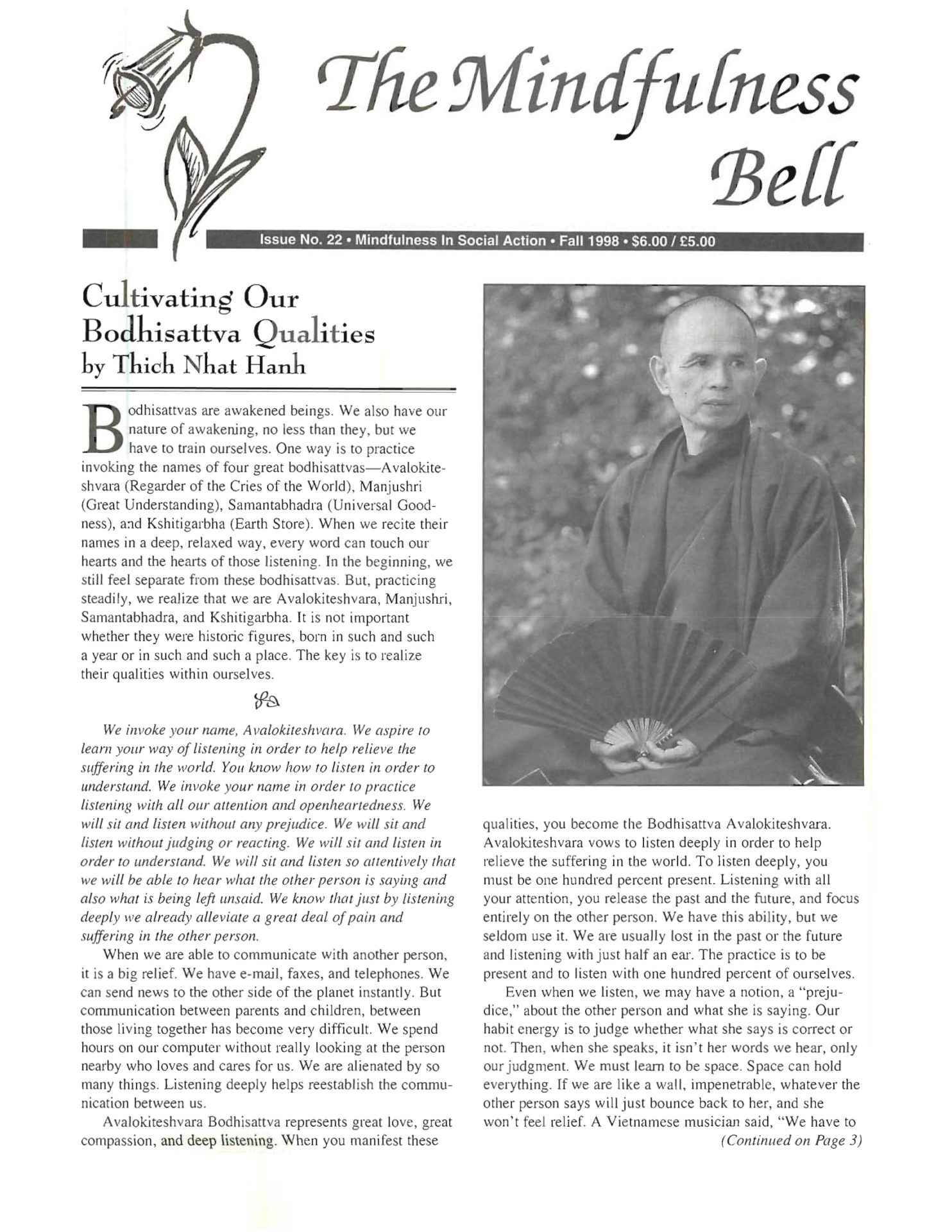By Bob Repoley
For the past few years, practitioners from several North Carolina Sanghas have practiced mindfulness and meditation with inmates in the state prisons. North Carolina is a conservative state and Buddhists are often viewed as strange. For example, one prison officer called us “Voodists” and was convinced Jesus would want her to stay away from us. Still, we have established four prison Sanghas in three facilities, reaching more than 50 inmates each month-from teenagers to older adults.
By Bob Repoley
For the past few years, practitioners from several North Carolina Sanghas have practiced mindfulness and meditation with inmates in the state prisons. North Carolina is a conservative state and Buddhists are often viewed as strange. For example, one prison officer called us "Voodists" and was convinced Jesus would want her to stay away from us. Still, we have established four prison Sanghas in three facilities, reaching more than 50 inmates each month-from teenagers to older adults. Meetings typically include sitting meditation and discussion about teachings and practice. One chaplain we work with featured the Five Mindfulness Trainings in his monthly newsletter. Another allows the Sangha in his prison to meet weekly. We hope to establish a women's prison group soon.
Three factors contribute to our success: local Sanghas, volunteers, and prison Sanghas. Local Sanghas are generous with time and resources. While not all members visit, many help with loving encouragement or donations for literature and supplies. Sangha discussions help shape the programs and discussions within the prisons.
In our state, most inmates can meet only when volunteers come. The prisons are spread across the state, some in remote areas. Volunteers travel thousands of miles to be with the inmates, to attend annual training required by the state, and to meet for planning and support. Their compassion and dedication is critical.
Prison Sanghas are the third factor in the success. While volunteers may have more meditation experience than most inmates, practicing together emiches us all. When things go wrong, the prison Sangha's strength often pulls us through. Recently, in a prison hostile to our presence, the Sangha was bumped from the comfortable chapel, where we had met for a long time, to a hot, noisy room. We volunteers saw the move developing before our visit and were angry over being harassed yet again by the administration. With the inmates, we looked at the seeds of our anger, then chose to water seeds of lovingkindness towards everyone involved. We realized that wherever we met, the group was sacred to us.
Nine months after our encounter with the officer who called us "Voodists," I ran into her again at the front gate. As I signed in, she called the control room to say I had arrived. "Here comes another one," she said with a straight face. I smiled and said to her, "Yes, here comes another one." We both laughed. A few minutes later, she stopped me on my way in and looked me right in the eyes. "Teach them something good today," she said seriously. "I'll do my best," I replied. We both smiled and I entered the prison.
Bob Repoley, Compassion of the Source, practices with the Charlotte Community of Mindfulness in North Carolina.

